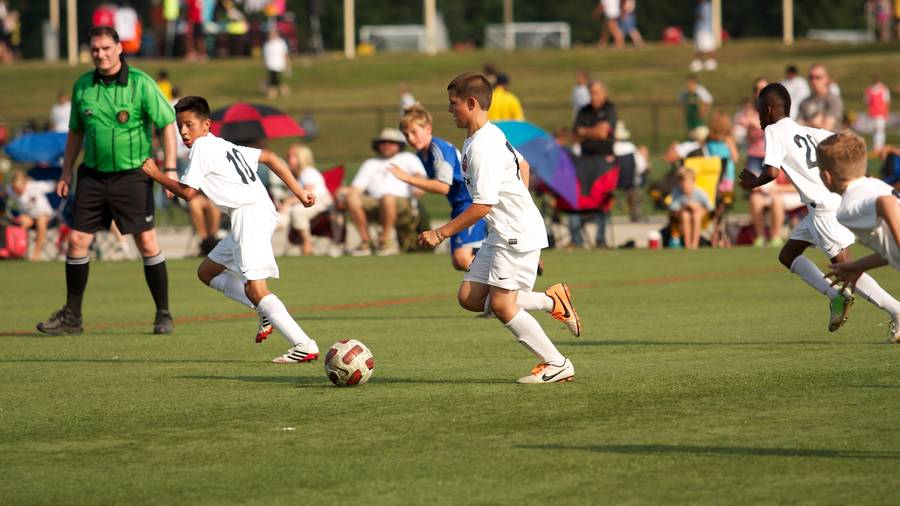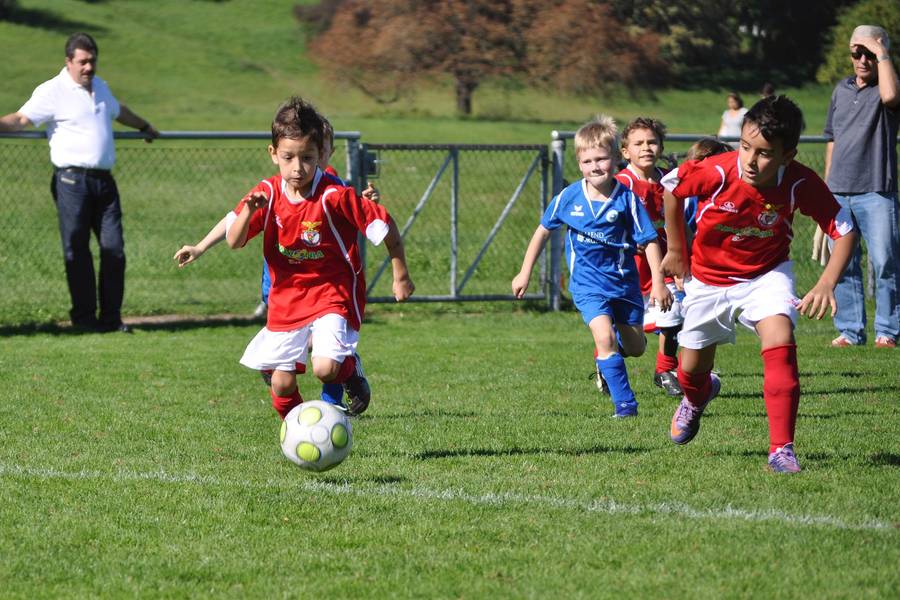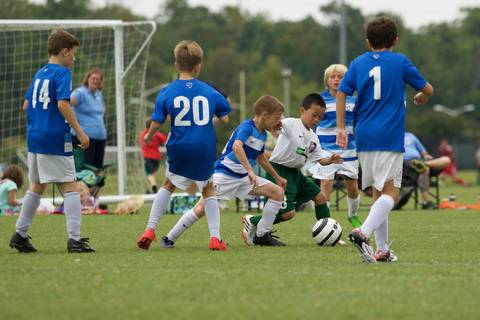
When we think of junior grassroots football images of muddy pitches, massively over enthusiastic parents, and children swarming after the ball come to mind. But beneath the surface lies a powerful world of character development, life lessons and leadership training. At its core, football is more than just a game, it's a microcosm of life itself. The pitch becomes a development ground not just for football skills, but for the essential qualities that shape resilient, adaptable, and empathetic individuals. Any football match throws up a range of challenges for any young player to face. The pressure of a penalty kick, the disappointment of a loss, the thrill of a last minute victory or the frustration of being left on the bench. Each of these experiences is a brick in the foundation of character building.
Just about any football match is an exercise in problem solving skills. In the heat of the moment, young players must make split second decisions. Should they pass or shoot? Cross or beat the defender? Follow the runner or let them run offside? Drop back to defend or push forward to attack? These micro-decisions, made countless times in every game, hone a player's ability to assess situations quickly and act decisively, a skill invaluable in any future career.
Setbacks are an inevitable part of football, as they are in life. A missed chance, a tough loss or missing a game through injury, these challenges test a young player's resilience. Learning to bounce back from these setbacks, to analyse what went wrong and how to improve, instils a healthy mindset that serves way beyond the football pitch. It's this ability to view failures as learning opportunities rather than insurmountable obstacles that often separates successful leaders from the rest.

Teamwork is perhaps the most obvious and standout lesson from football, but its importance cannot be overstated. In an era where collaboration is key in almost every industry, the experience of working towards a common goal, supporting teammates, and putting the team's needs above individual glory is invaluable. From the boardroom to the operating theatre, the ability to function effectively as part of a team is absolutely crucial. But grassroots football doesn't just teach how to be a good team player, it also nurtures leadership skills. Whether it's the captain rallying the team during a tough match, a senior player mentoring younger ones, or even a substitute encouraging from the sidelines, opportunities for leadership present themselves to young players all the time. These experiences teach young players how to motivate others, communicate effectively, and lead by example which are all hallmarks of great leaders in any field.
The supportive aspect of football also shouldn't be underestimated. Young players learn to inspire teammates who are struggling, offer constructive feedback and celebrate each other's successes. This helps to develop emotional intelligence and empathy, qualities that are increasingly recognised as crucial in effective leadership and teamwork across all sectors.
The impact of grassroots football on leadership development is a subject that has garnered increasing attention from sports psychologists, educators and community leaders more recently. Studies have shown that participation in team sports, particularly football, can significantly enhance a child's emotional intelligence, problem-solving abilities and social skills. These attributes are the bedrock of effective leadership, whether in the boardroom, the classroom, or the community.
Emma Thompson, a former grassroots player from Manchester who credits her success as a tech entrepreneur to the lessons learned on the pitch. "My coach always emphasised the importance of
vision and having a strategy for our team," Thompson recalls. "He taught us to see the whole game, to anticipate what was going to happen next before it happened. That ability to think ahead has been invaluable in my business career."
Emma's experience is not unique. Across the UK, countless individuals trace their leadership journey back to their formative years in grassroots football. This connection between sports participation and leadership development is more than anecdotal. A longitudinal study conducted by the University of Exeter followed 500 grassroots football players over 15 years and found that those who had positive coaching experiences were 37% more likely to take on leadership roles in their careers and communities.
Grassroots football has a unique power to break down social boundaries. On the pitch, it doesn't matter if you're from a council estate or a posh suburb, what matters is how you play and how you treat your teammates. This integration across social divides helps teach young players to value diversity, judge others on their merits rather than their background, and work effectively with people from all walks of life, all essential life skills in our increasingly globalised world.
It's also worth noting the role of failure in character building. In an age where children are often shielded from disappointment, football provides a safe space to experience and learn from failure. Missing a crucial goalscoring opportunity or losing an important match can be gut wrenching, but these experiences, when properly guided by coaches and parents, teach resilience and the importance of continuous improvement.
However, it's crucial to acknowledge that positive outcomes aren't automatic. The character building potential of grassroots football relies heavily on the environment created by coaches, parents and the wider football community. A toxic, win at all costs mentality can undermine these benefits, while a nurturing approach that values effort, improvement, and resilience can amplify them.
While not every child who kicks a ball on a Saturday or Sunday morning will go on to lift the Premier League trophy, the lessons learned on those muddy pitches can help shape the CEOs, teachers, doctors, and community leaders of tomorrow. Junior grassroots football at its best, is a holistic training ground for life. It teaches young people to solve problems under pressure, respond constructively to setbacks, work effectively in teams, lead with empathy, support others, and bridge social divides. These are the very qualities that define effective leaders and well-rounded individuals in any field.
In the end, the true measure of success in grassroots football isn't found in league tables or trophy presentations. It's reflected in the confident strides of young adults entering the workforce, in the compassionate actions of community volunteers, and in the innovative thinking of entrepreneurs tackling global challenges. These are the real victories, and the coaches who dedicate themselves to nurturing not just better players, but better people deserve credit for it.
















